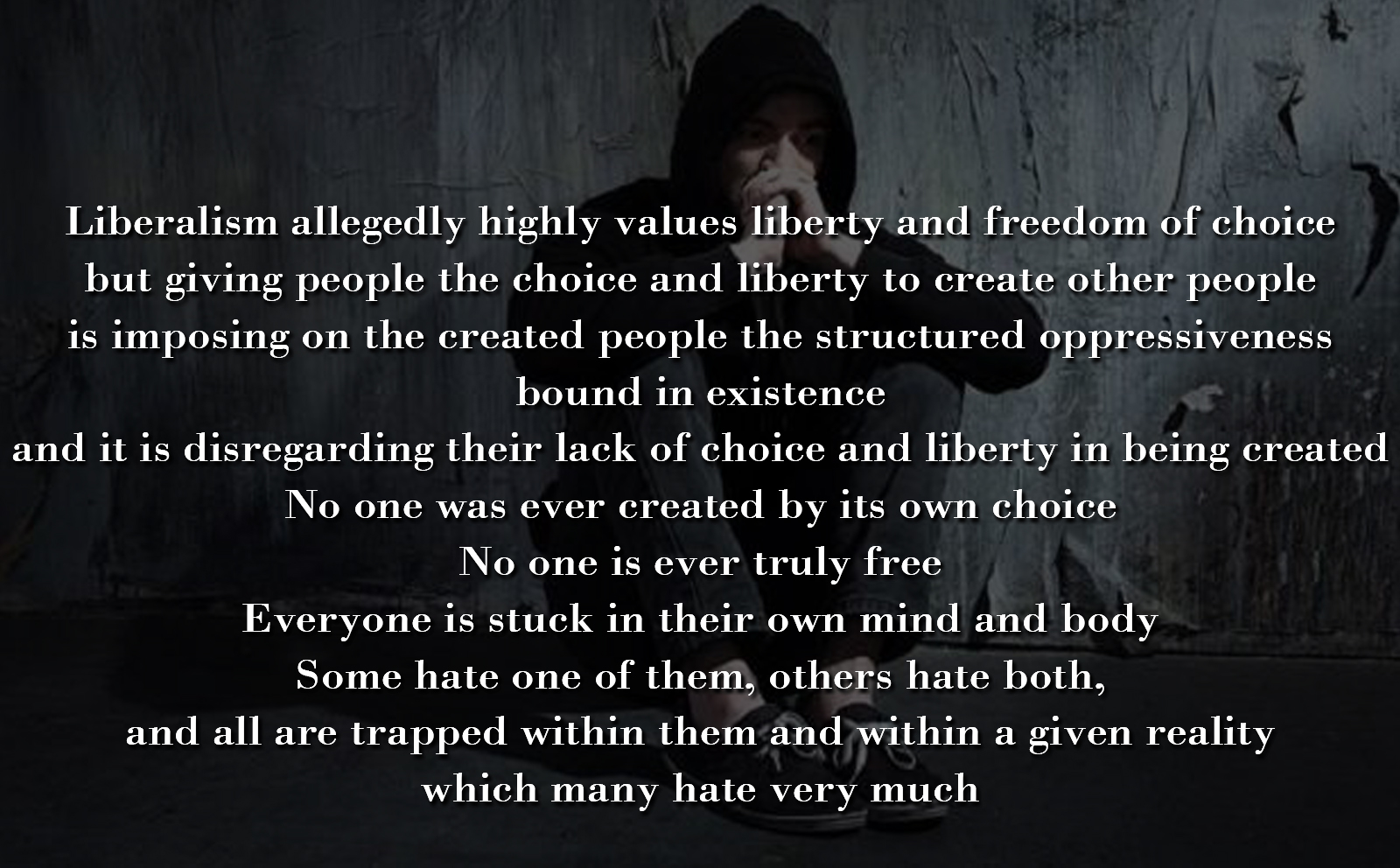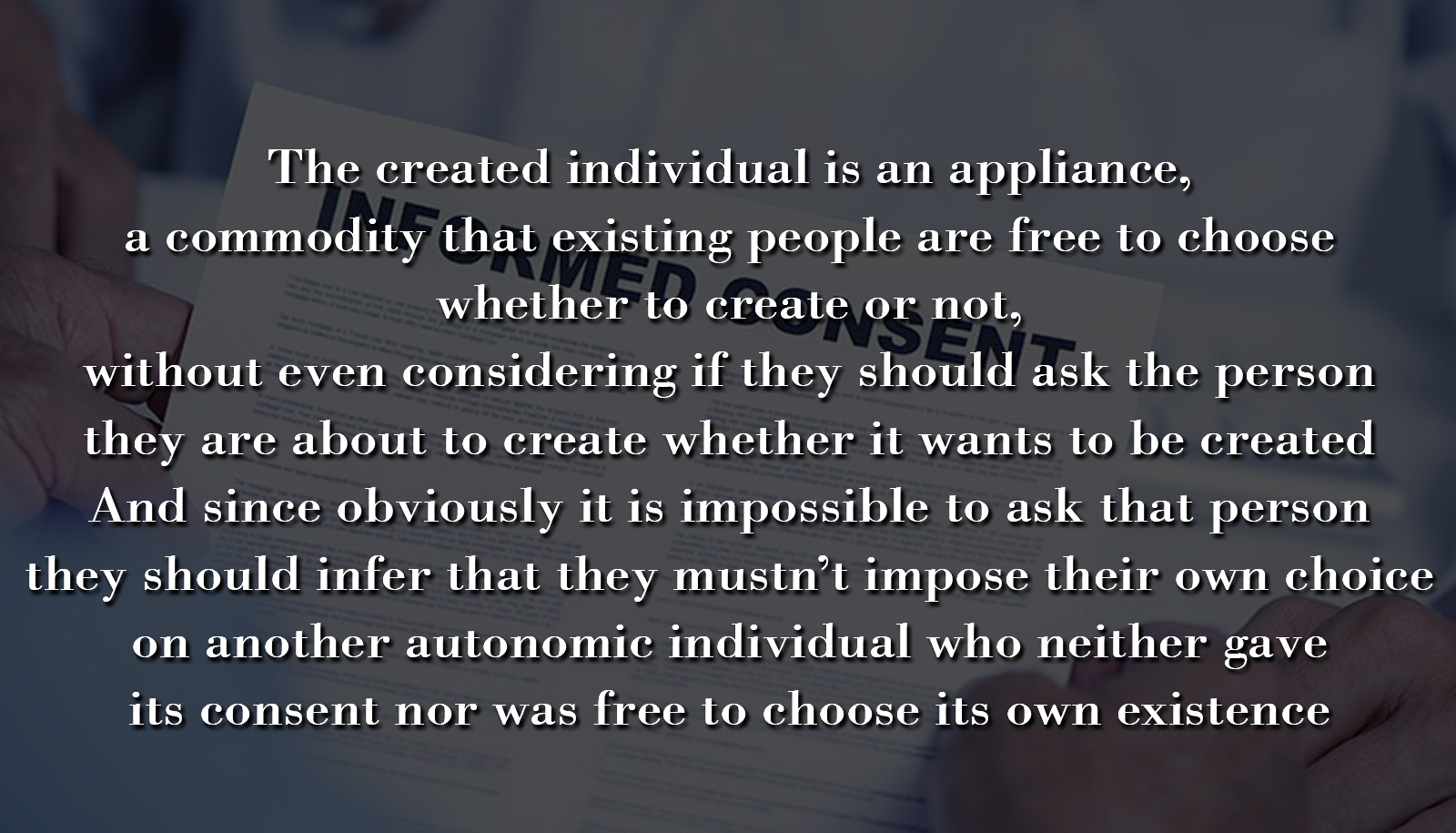Liberal societies seemingly highly value liberty and individualism but there is something oxymoronic about it when the general approach is actually – stay out of my plate, stay out of my closet, don’t tell me how to raise my kids, how to treat my dog, where to throw my trash, and certainly stay out of my ovaries, despite that all of the above and a lot more, are usually if not always, harmful to other individuals. Ordinarily, the attitude of most is demanding people to butt out of their lives no matter how wrong and harmful they are to others, because it is their life, and they are free to do as they please.
This is not individualism but more like every individual for him/her self. This is not liberalism but egoism. There is no respect to others’ liberties and individualism, or identifying ‘the other’ as an independent autonomic being. If that was the case then all people would have been vegans (so not to violate the liberty of the individuals they consume), environmentalists (so not to violate the liberty of the individuals that they pollute and destruct their habitats), and would have realized that they should not procreate as it is definitely a case of imposing one’s desires on another individual. It is imposing on another individual the most important element in one’s life – its existence.
Liberalism allegedly highly values liberty and freedom of choice, but giving people the choice and liberty to create other people is imposing on the created people the structured oppressiveness bound in existence, and it is disregarding their lack of choice and liberty in being created. No one was ever created by its own choice. No one is ever truly free. Everyone is stuck in their own mind and body. Some hate one of them, others hate both, and all are trapped within them and within a given reality, which many hate very much. This is a very important point but even if this wasn’t the case, meaning even if most people had been satisfied with the mind, body and the set of living conditions which were forced on them, although the wrongness of breeding was less severe and the problem was less urgent, it still was anti-liberty and anti-individualistic. And for all the ones who are regularly and systematically harmed by people, obviously it would have still been as wrong and as urgent as it is in the case of the created people hating their lives. As far as the victims are concerned, there is no difference whether their victimizers are happy or miserable or anything in between, they are miserable always and regardless.
Life always involves severe structured restrictions and significant intrinsic limitations. A person can’t escape who s/he is, or the reality it was forced into and that shaped that person in so many ways. Even if you are certain that the most crucial factor in shaping a person is its environment and not its genetics (there are studies supporting each side so it is hard to tell whether it is more nature or more nurture, but there is no doubt that both are critical), it is not always possible to get out of a bad environment, and it is definitely impossible to absolutely null its effect. And even in cases of “good genetics” and amazing environment, something bad can always happen to someone, independently of any biological and environmental factor. Procreation is always an imposition, even when everything is great. And, supposedly great lives, can always reverse.
An important point which should be clarified is that obviously liberalism has brought many good and important notions into people’s lives such as freedom of thought, freedom of speech, freedom of association, civil rights and civil liberties, and that’s only a partial list. Liberalism also had a very positive effect in terms of procreation since placing the individual in the center of attention as opposed to the nation, society, god and etc., made people realize they don’t have to procreate if they don’t want to, because it is their desires that count most. But that effect, as I argue in a different text is mostly indirect, and it goes both ways (it is great that some people can choose not to create a new person if they don’t want to, but on the same line of thought many feel that they are entitled to, if they do want to).
A more direct effect, which is also on a larger ethical scale, is that placing the liberty of the individual in the center of attention resulted not only in people starting to place their own interests before their supposed gods’ supposed interests, and their supposed nation’s and society’s interests, but also the interests of others. Obviously I am not saying here that it is liberalism which initiated moralism (clearly moralism came way before it), but that it had a crucial and indispensable part in more and more ethical traditions focusing on the interests of others as the basic, if not the only, relevant criterion in ethics.
So this text is not about putting the blame on liberalism. The point is not to criticize the philosophical and political aspects of liberalism (although there are certainly good reasons to do so as it is hard to separate liberalism and capitalism, including its more aggressive versions for example), but to point at the hypocrisy and double standard among liberal societies when it comes to procreation. Freedom of choice, autonomy and consent are of the most basic and elementary aspects of liberalism, yet they are totally overlooked even in the most liberal societies in the world, when it comes to creating new people. The created individual is an appliance, a commodity that existing people are free to choose whether to create or not, without even considering if they should ask the person they are about to create whether it wants to be created. And since obviously it is impossible to ask that person, they should infer that they mustn’t impose their own choice on another autonomic individual who neither gave its consent nor was free to choose its own existence.


Leave a Reply